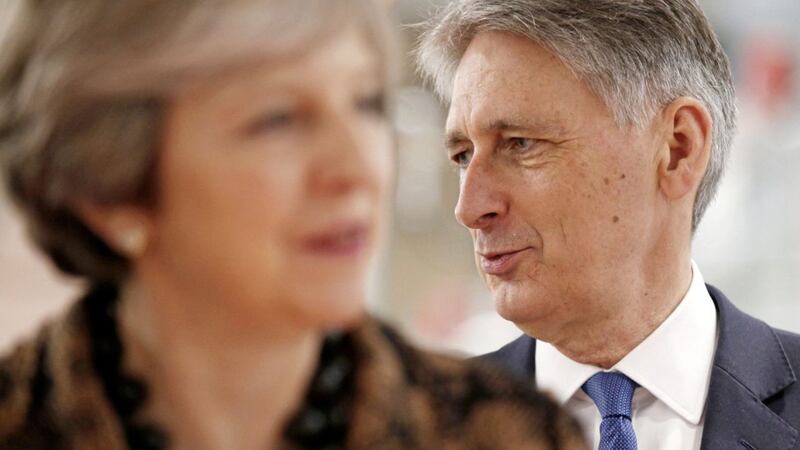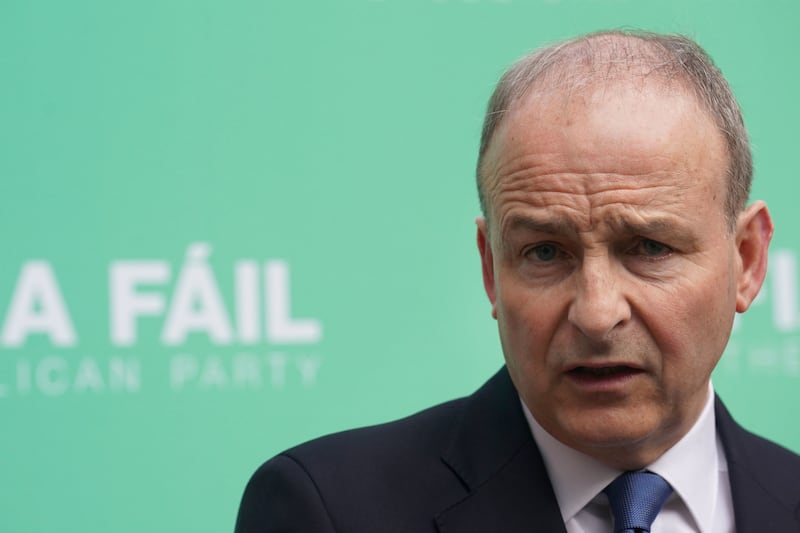BUSINESSES in Northern Ireland are bracing themselves for potential hurt in tomorrow's Budget - just when they'd hoped to have the i's dotted and t's crossed on plans to have their own rate of corporation tax from next spring.
With the UK enduring the lowest growth and the highest inflation of the 10 major EU economies, Chancellor Philip Hammond has to find an additional sum in the region of £10 billion to lay the foundations of a post-Brexit economy.
Amid rumours of initiatives around a Universal Credit backtrack, a tax on single-use polystyrene kebab trays, coffee cups and packaging, and scrapping stamp duty for first-time buyers, Hammond is expected to rely on cuts rather than economic growth to address his government's deficit reduction plans.
And some experts are predicting he might be forced to rethink his plans to keep on cutting the headline rate of corporation tax (the Tories' stated aim is to have it down to 17 per cent by the end of this decade, whereas it was 28 per cent when David Cameron became prime minister in 2010).
In his March Budget Mr Hammond reaffirmed his commitment to reducing the rate further, claimed that cutting it to 17 per cent by 2020 would send the “clearest possible signal" that the UK is open for business.
Now, however, he's coming under pressure to renege on that pledge, at least in this Budget, and should redirect the money earmarked for a corporation tax cut to tackle other policy challenges.
A formal Westminster pronouncement around corporation tax-setting powers will, of course, be closely watched in Northern Ireland, where any change would alter the cost-benefit calculus relating to the proposal to deliver a reduction in rate here to 12.5 per cent.
That should have been happening next April - but that will now be impossible to deliver in the absence of devolution.
Business groups in the north are urging the Chancellor to resist calls for short-term giveaways and focus his fire power on big measures that address the long term structural issues which continue to thwart investment, productivity and growth across the UK, including Northern Ireland.
NI Chamber of Commerce chief executive Ann McGregor said: “This Budget is more vital than most as the government must set the foundations of our economy post-Brexit.
"Whilst businesses want the best possible Brexit deal, if we don’t create the conditions for growth at home, companies won’t be in a position to meet the challenges, or take advantage of the opportunities, of our new place outside the EU."
The Chamber has urged the Chancellor to take "big and bold action to incentivise" firms to invest, which in turn will raise wages and living standards.
Ms McGregor insisted that, despite the current deadlock between political parties which has left Northern Ireland without a devolved administration, measures to devolve corporation tax to must move forward.
“The concern is that the proposed implementation date of April 2018 may slip back further, and that would be a significant blow to the Northern Ireland economy as the cut in the level of corporation tax is intended to encourage inward investment, create jobs and compete with the Republic's rate.”
So what else might tomorrow's Budget have in store for Northern Ireland?
Dr Esmond Birnie, senior economist Ulster University Economic Policy Centre, says that while the Chancellor faces plenty of demands for spending increases, he has limited options on how to raise revenue.
"A punitive tax on diesel cars may be on its way, higher taxation on occupational pensions and possibly a retreat from that previous commitment to cut UK corporation tax to 17 per cent by 2020, Dr Birnie said.
He added: "There could be a small addition to public spending in Northern Ireland, though such a positive Barnett consequential is likely to be small (less than £100m in one year and possibly less than £50m), although the Chancellor will be able to be more generous if he decides to push the previously stated target of a balanced budget in the next Parliament back by a few years."








